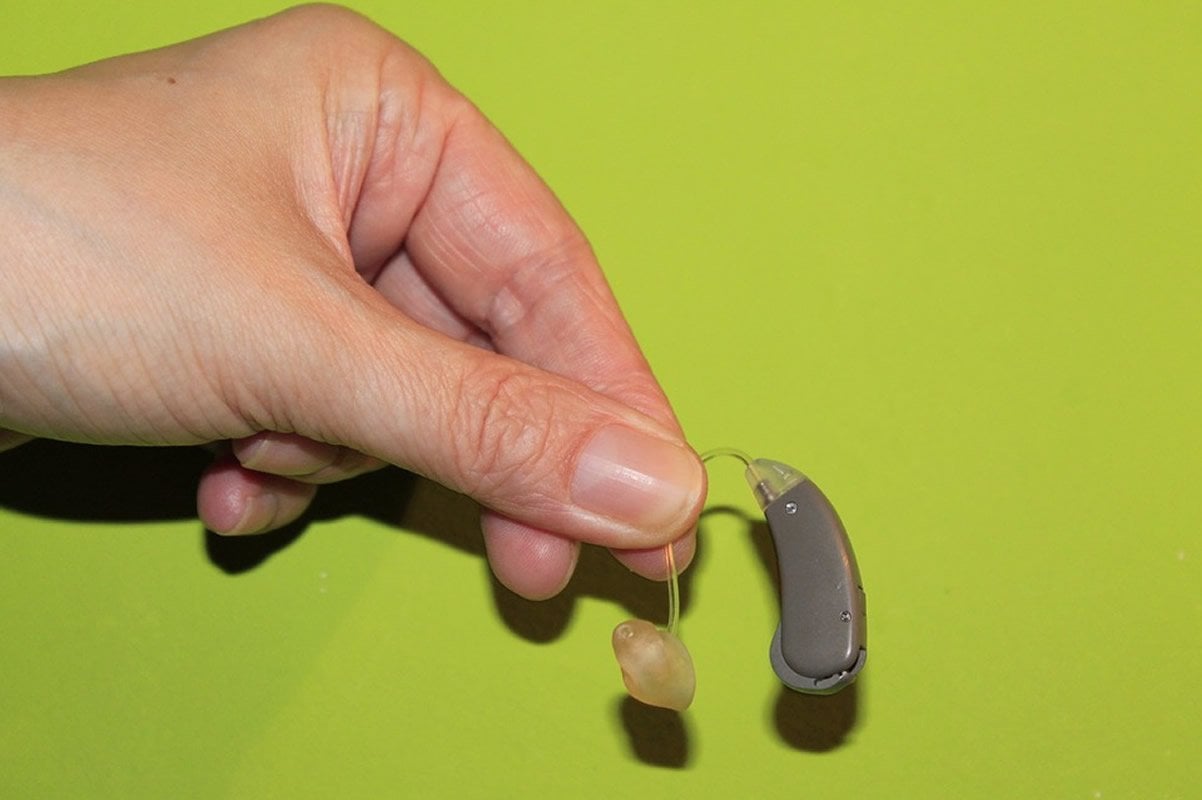Summary: Wearing a hearing aid for age-related hearing loss may help to protect the brain against dementia, a new study finds. Researchers report those who wore hearing aids maintained better brain function over time than those who did not.
Source: University of Exeter
A new study has concluded that people who wear a hearing aid for age-related hearing problems maintain better brain function over time than those who do not.
It builds on important research in recent years pulled together by the Lancet Commission on Dementia Prevention, Intervention, and Care, through which hearing loss emerged as an important risk factor for dementia. This research suggests that wearing a hearing aid may mitigate that risk.
The research was conducted by the University of Exeter and King’s College London and is presented at the Alzheimer’s Association International Conference in LA. In the PROTECT online study of 25,000 people aged 50 or over.
The findings provide early evidence that encouraging people to wear an effective hearing aid may help to protect their brains and reduce their risk of dementia.
Both groups undertook annual cognitive tests over two years. After that time, the group who wore hearing aids performed better in measures assessing working memory and aspects of attention than those who did not. On one attention measure, people who wore hearing aids showed faster reaction times – in everyday terms, this is a reflection of concentration, for example, ‘straining to hear a sound’, ‘peering closely at an object of great interest’, ‘listening intently to someone speaking’.

PROTECT lead Dr. Anne Corbett, from the University of Exeter, said: “Previous research has shown that hearing loss is linked to a loss of brain function, memory and an increased risk of dementia. Our work is one of the largest studies to look at the impact of wearing a hearing aid and suggests that wearing a hearing aid could actually protect the brain. We now need more research and a clinical trial to test this and perhaps feed into policy to help keep people healthy in later life.”
Professor Clive Ballard, of the University of Exeter Medical School, said: “We know that we could reduce dementia risk by a third if we all took action from mid-life. This research is part of an essential body of work to find out what really works to keep our brains healthy. This is an early finding and needs more investigation, yet it has exciting potential. The message here is that if you’re advised you need a hearing aid, find one that works for you. At the very least it will improve your hearing and it could help keep your brain sharp too.”
Source:
University of Exeter
Media Contacts:
Louise Vennells – University of Exeter
Image Source:
The image is in the public domain.
Original Research: The findings will be presented at Alzheimer’s Association International Conference 2019 in Los Angeles, California.






